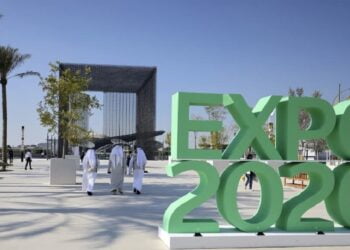Examining Socio-Political Landscape of Israel and the Debate over Its Path Towards Religious Identity.
In recent years, Israel has found itself at a critical juncture, facing a complex conundrum that goes to the heart of its national identity. The debate surrounding whether Israel is heading towards becoming a religious state has gained significant traction, prompting impassioned discussions within the country and across the globe. As the balance between religious traditions and democratic values continues to evolve, it is imperative to critically analyze the forces at play and the potential implications of such a transformation.
The origins of Israel are deeply rooted in a unique blend of historical narratives, cultural diversity, and religious significance. Established as a haven for the Jewish people, the country was founded on principles that sought to provide a sanctuary for individuals of all backgrounds to practice their faith freely. This vision was intrinsically tied to democratic ideals that upheld the rights and liberties of its citizens, irrespective of religious beliefs.
However, recent trends have ignited a spirited debate about the trajectory of Israel’s identity. Some argue that the growing influence of religious factions within the political sphere and society at large signals a shift towards a more religiously-oriented state. Critics point to legislative and policy changes that prioritize religious norms, raising concerns about potential infringements on individual freedoms and Equality.
Political Religion
The role of religion in Israeli politics has grown increasingly prominent, with religious parties often holding sway in coalition negotiations and policymaking. While the preservation of religious traditions and values is undoubtedly important to many Israelis, the encroachment of religious interpretations into matters of governance raises vital questions about the boundaries between religion and state.
The evolving nature of Israel’s identity is further underscored by its demography. A diverse population comprised of Jewish, Arab, and other minority communities contributes to a complex tapestry of beliefs and perspectives. While religion holds deep significance for many, there is an ongoing tension between preserving religious heritage and ensuring that the state remains inclusive and accommodating of its multi-faith populace.
The debate about Israel’s trajectory goes beyond its borders, resonating with international observers and stakeholders. As the Middle East navigates a dynamic geopolitical landscape, Israel’s internal choices reverberate regionally, influencing diplomatic relations, strategic partnerships, and perceptions of stability.
It is important to approach this discussion with nuance and sensitivity, acknowledging the multiple dimensions at play. Israel’s commitment to democratic values and its vibrant tapestry of cultures and faiths remain integral to its character. The challenge lies in finding a delicate equilibrium that honors the country’s religious heritage while upholding the principles of individual rights, equality, and pluralism.
The question of whether Israel is on the path to becoming a religious state is a matter of profound significance. As debates unfold within its borders and beyond, it is vital to engage in thoughtful discourse that recognizes the complexity of the issue. Israel’s journey towards defining its identity requires a delicate balance, one that respects its rich religious heritage while safeguarding the democratic values that underpin its foundation. The future of Israel’s identity remains a subject of ongoing exploration, shaped by the interplay of history, politics, and the aspirations of its diverse citizenry.







